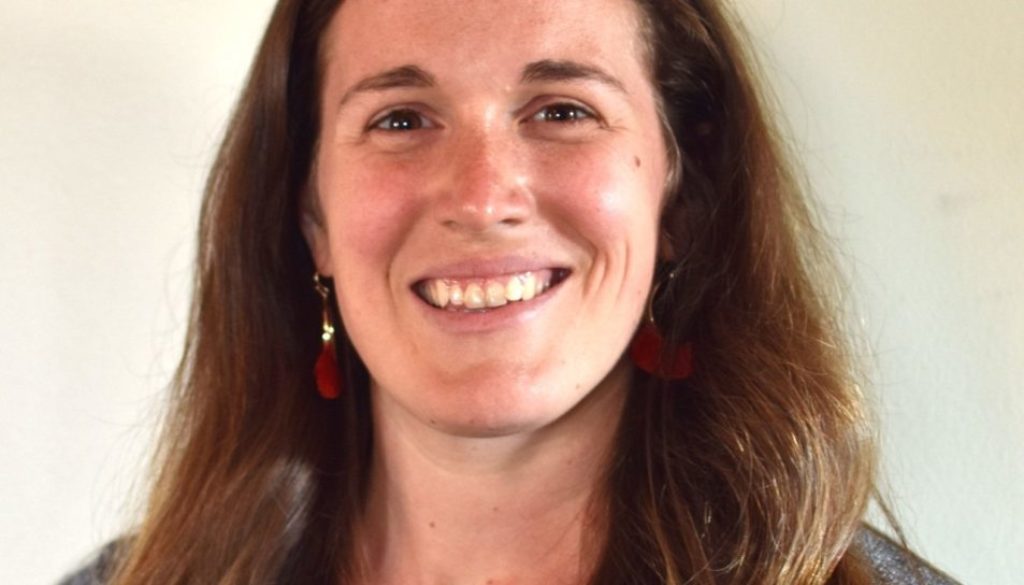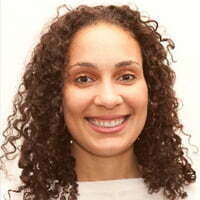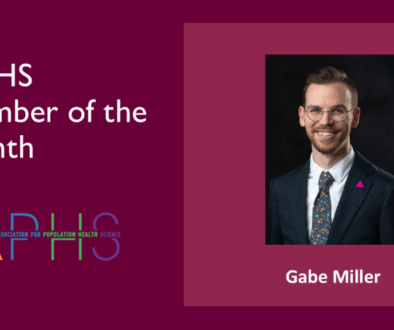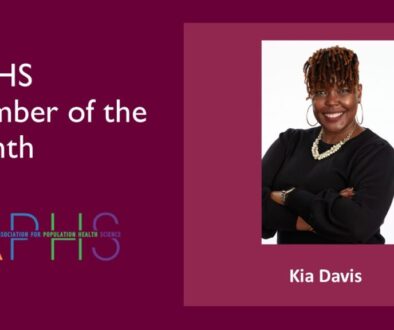Member of the Month: Savannah Larimore
Hedwig LeeSavannah Larimore is a Postdoctoral Scholar in the Department of Sociology at Washington University in St. Louis. Savannah joined IAPHS in 2016. Follow her on twitter: @savhopel
Tell us a little about yourself, where are you from, where did you go to graduate school, what makes you jump out of bed each morning?
I grew up in the middle of North Carolina in a town so small most North Carolinians don’t know where it is! I recently received my PhD in Sociology at the University of Washington in Seattle. I’m really fortunate to be involved in lots of different research projects related to health and the variety of topics I get to explore and the variety of people I get to work with make every day something to look forward to.
How do you define yourself as a population health professional?
This is a weirdly hard question to answer! I think of myself as a health sociologist on the border of medical sociology and social epidemiology. I also do a lot of teaching for different audiences and when I take on that role, I think of myself as a social determinants of health educator.
What disciplines do you engage with and are there disciplines that you would like to engage with?
I work mostly with demographers, sociologists, and physicians from various specializations. Every now and then I get to work with folks in geography, computer science, and global health, which is always really interesting. In the future, I would love to work with education researchers and practitioners to think critically about the relationship between education and health.
Describe a current project/initiative that you are excited about.
While I always thought of teaching as a way to pay the bills, it’s actually become something that I really look forward to and enjoy. Among my teaching roles, working at the UW School of Medicine has been the most rewarding. While I know that extra-clinical factors are the primary determinants of population health, there’s something really powerful about teaching medical students about the social determinants of health and providing them with the language and tools they need to best serve their patients. We’re also starting to conduct research on the long-term effects of this curriculum on students and physician-faculty, and those projects are really exciting.
Name a population health professional who you admire and why?
I’m biased, but my advisor and mentor Hedy Lee is someone I really admire. Hedy is brilliant and really embodies the interdisciplinary nature of population health research. She’s also incredibly compassionate and the way that she interacts with her colleagues and students is something I aspire to.
How did you hear about IAPHS?/Why did you decide to become a member of IAPHS?
I heard about IAPHS through the Center for Studies in Demography and Ecology at UW. I decided to join IAPHS because of the explicit focus on interdisciplinary work. My background and training has kind of been all over the place which usually makes me feel a bit out of place but with an interdisciplinary group like this I feel right at home.
Have you attended an IAPHS meeting? If so, what do you like most about these meeting?
I attended the 2017 meeting in Austin and I loved how open and friendly everyone was. I got to meet a lot of graduate students and early career researchers. I also loved that I could go from one session about medical practice to a session on policy.
What would you tell someone who is considering joining IAPHS?
I would say go for it! This is a great organization and everyone is really supportive.
What would you like to see IAPHS do in the future?
I would love for the organization to keep growing and incorporating scholars from various disciplines. I’ve seen so many scholars from philosophy, linguistics, and literature working on projects related to population health and I would love for those folks to be involved in IAPHS.
Is there anything we have missed that you would like to add?
Thanks for letting me share a little bit about myself! If you’re going to the meeting in Seattle, feel free to say “hi!”, I would love to meet y’all!
Favorite population health relevant book:
Marmot, M. (2005). Status syndrome: How your social standing directly affects your health. A&C Black.
Reid, T. R. (2010). The healing of America: A global quest for better, cheaper, and fairer health care. Penguin.
Washington, H. A. (2006). Medical apartheid: The dark history of medical experimentation on Black Americans from colonial times to the present. Doubleday Books.
Favorite population health relevant academic/news/etc. article(s):
Eichelberger, K. Y., Doll, K., Ekpo, G. E., & Zerden, M. L. (2016). Black lives matter: claiming a space for evidence-based outrage in obstetrics and gynecology.
Tuck, E., & Yang, K. W. (2014). R-words: Refusing research. Humanizing research: Decolonizing qualitative inquiry with youth and communities, 223-248.
Lowrey, A. (2014). Income gap, meet the longevity gap. New York Times, 15.
Favorite movie, band, non-fiction, book, etc.:
Book: We Are Never Meeting in Real Life by Samantha Irby
Band: Alabama Shakes
Movie: Lord of the Rings: The Two Towers (Extended Edition)






All comments will be reviewed and posted if substantive and of general interest to IAPHS readers.